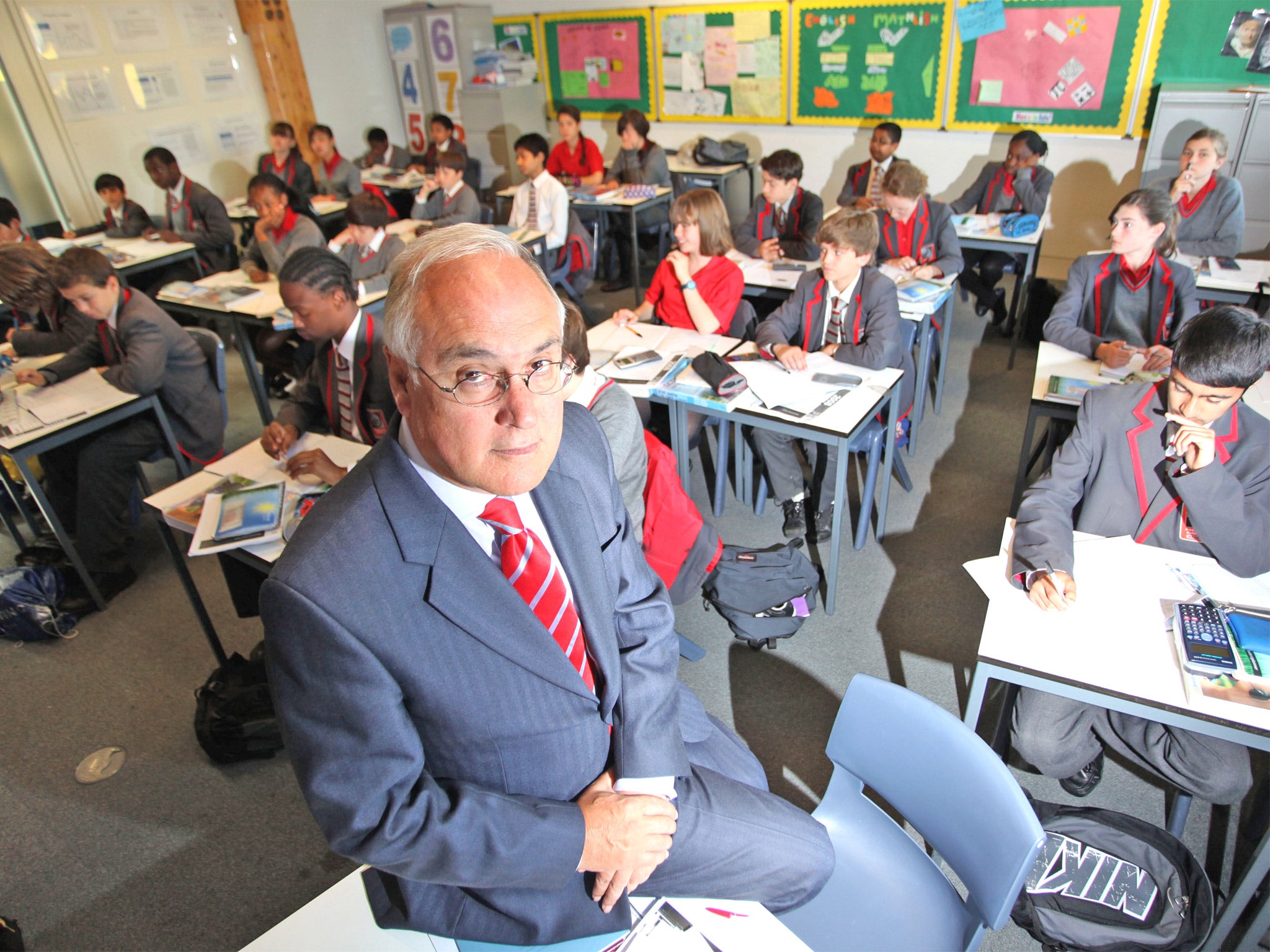Poor children are being let down by schools, warns Ofsted
The TeachFirst initiative is narrowing the attainment gap between rich and poor pupils

The country’s most talented teachers and heads should be put on central contracts so they can be parachuted into schools that are failing disadvantaged pupils, Chief Schools Inspector Sir Michael Wilshaw will urge today.
They would be deployed to improve the teaching of disadvantaged children in the leafy suburbs, rural market towns and seaside resorts – where the gap between the performance of poor and rich pupils is greatest, and where many deprived young people endure “indifferent teaching”.
Sir Michael, who is head of education standards watchdog Ofsted, will outline a plan to set up a network of “national service teachers” – employed on contracts with central government to help sort out failing schools.
He will publish evidence which shows that the schools with the worst records in teaching disadvantaged pupils are no longer those in the inner cities – but deprived coastal towns and rural areas in the east and south-east of England. It will add that even in areas of relative affluence – Kettering, Wokingham, Norwich and Newbury – a significant number of poorer children are being failed.
“Today, many of the disadvantaged children performing least well can be found in leafy suburbs, market towns or seaside resorts,” Sir Michael will say in a speech at Church House in London today.
“Often, they are spread thinly as an ‘invisible minority’ across areas that are relatively affluent. These poor, unseen children can be found in mediocre schools the length and breadth of the country. They are labelled, buried in lower sets, consigned as often as not to indifferent teaching. They coast through education until – at the earliest opportunity – they sever their ties with it.
“The most important factor in reversing these trends is to attract and incentivise the best people to the leadership of under-performing schools in these areas,” Sir Michael will add.
“This may require government to work with teaching schools (specially designated to aid in the training of teachers) to identify and incentivise experienced and effective teachers to work in less fashionable, more remote or challenging places. The concept of a ‘national service teacher’ should be considered.”
The suggestion is likely to be met favourably by Education Secret-ary Michael Gove, who has made a crusade out of trying to improve education standards for the most disadvantaged youngsters.
A spokesman for the Department for Education said: “We will consider Ofsted’s recommendations and respond in due course.”
Today’s evidence is expected to show a transformation of standards in inner-city schools – particularly in London, Birmingham, Greater Manchester, Liverpool and Leicester – where the TeachFirst initiative (which sends the brightest graduates into inner-city schools) flourishes. As a result, the gap in attainment between rich and poor pupils is now closing.
Join our commenting forum
Join thought-provoking conversations, follow other Independent readers and see their replies
Comments
Bookmark popover
Removed from bookmarks